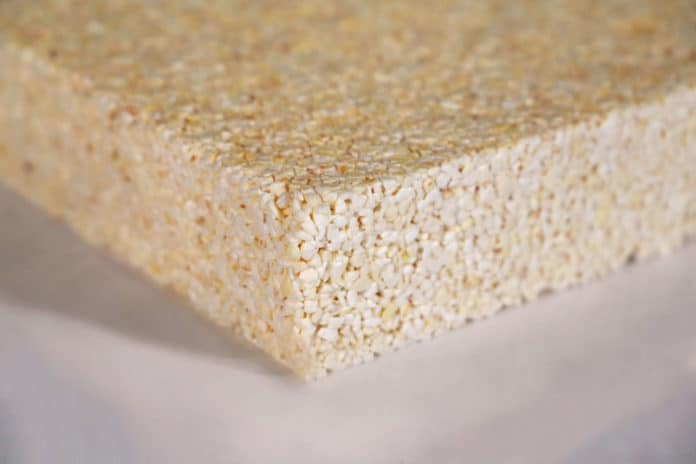In recent years, building insulation has become an increasingly important topic. Properly insulating your home reduces heating costs, which means lower CO2 emissions. Today, the market is dominated by conventional insulation materials made of plastics or mineral fiber.
A research group at the University of Göttingen has long been researching manufacturing processes for products made of popcorn that are sustainable and efficient. Now, forest scientists have managed to develop a process by which insulation boards made of “granulated” popcorn can be produced that have excellent thermal insulation properties and good protection against fire.
This granular material is a plant-based, environmentally friendly, and sustainable alternative to the products derived from petroleum currently used in the industry.
Unlike petroleum-based insulation, popcorn is sustainable because it is made from renewable resources, sturdy enough to enable re-use, and easy to recycle when it comes to the end of its useful life. Its water repellency can also make it useful in other applications, such as insulation and packaging.
It could be an excellent substitute for expanded polystyrene (EPS) foam that is found not only in insulation but also in the millions of disposable food containers and shipping materials discarded annually. Polystyrene is cheap and lightweight but also non-biodegradable and difficult to recycle. According to the university, the new foam absorbs heat better than EPS, is much less flammable, is used to produce biogas, or even utilized as animal feed once discarded.
“This new process, based on that of the plastics industry, enables the cost-effective production of insulation boards at an industrial scale,” explains the head of the research group, Professor Alireza Kharazipour. “Especially in the field of insulation in construction, this ensures that natural insulation materials are no longer just niche products.” In addition, the new popcorn products have water-repellent properties, which opens up even more opportunities for practical applications and extends their useful life.
The technology has recently been licensed to Germany’s Bachl Group for the commercial use of the process and the products for building insulation.
